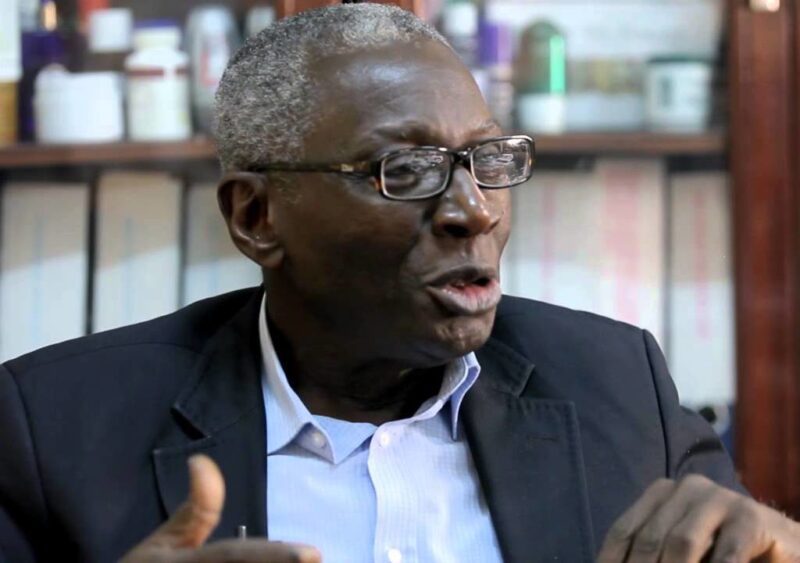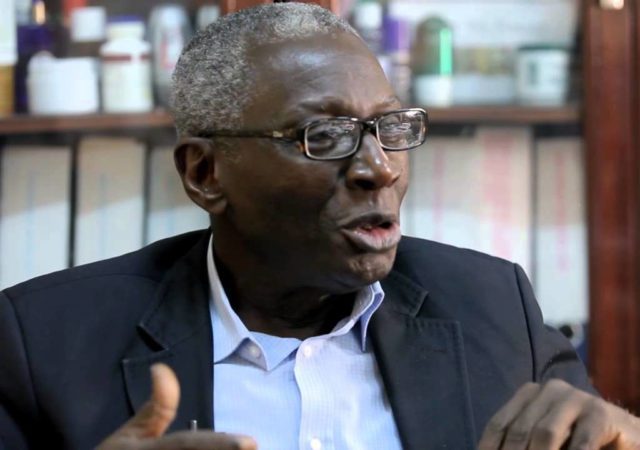Economic Issues
Central Bank Of Nigeria And The Free-floating Naira -By Henry Boyo

The report in the Tuesday, June 11th edition of the Daily Independent Newspaper, entitled, “Free-floating the naira is disobeying the law — CBN”, made an interesting reading. In the report, the Central Bank of Nigeria Governor, Godwin Emefiele, engaged stakeholders at an interactive session in Lagos on why he had rebuffed the incessant calls by some “experts” to deregulate and float the naira exchange rate, as a product of the actual market dynamics of demand and supply.
Notably, the proponents of deregulation argue that price controls create serious distortions in the supply chain and also claim that rather than the poor, oligarchs and Shylock middlemen are the usual beneficiaries of the huge subsidies that evolve from businesses where government sales price regulates.
The above contrasting positions notwithstanding, hereafter, excerpts of the CBN governor’s observations on why he will not float the naira rate will be more closely examined. To this end, Emefiele’s comments will be followed by this writer’s rejoinders. Please read on.
Emefiele: “A flexible exchange rate would not favour the poor. I am committed to protecting the naira. We cannot allow the naira to float freely.”

Comment: Notably, all successful First World economies, curiously, maintain floating exchange rates! Conversely, those countries with regulated exchange rates usually become poor dysfunctional economies, often with multiple discretionary exchange rates. For example, Nigeria with a regulated exchange rate tradition is now the world’s poverty capital. Instructively, however, the free-floating US dollar rate has remained fairly stable against other major currencies, while the naira rate has conversely crashed from N0.5=$1 to the present N305-360=$1. Undeniably, therefore, the CBN’s rate strategy has inexplicably failed woefully, overtime, to protect the naira, even when higher crude prices and best ever foreign reserves significantly improve Nigeria’s imports cover.
Emefiele: “It would be difficult to achieve a low interest rate regime, a stable exchange rate regime, robust reserve position, a low inflationary environment, and an environment of full employment simultaneously. But the question we should ask ourselves, in today’s Nigeria is, are these all possible at the same time?”
Comment: Instructively, the concurrent abiding monetary features in more successful economies with stable exchange rates, are “low interest rate regimes, with below three per cent Monetary Policy Rates, and inflation rates, usually, also below five per cent, plus a well-remunerated and trained labour force. Consequently, it is not true, as Emefiele claims, that benign monetary indices, robust reserves and increasing employment cannot exist simultaneously! Notably, however, despite its regulated rate, the naira is presently nearer 1000th of its value against its dollar value over 40 years ago, when 50Kobo exchanged for just $1.
Emefiele: “Put succinctly, we have watched some so-called economic and financial analysts through televisions, and others through the newspapers say that ‘to grow the economy and create jobs, the CBN must allow exchange rate to free-float, and also allow inflation to rise; while at the same time allowing interest rates to come down.’ Again, I am not surprised at these views because most have done so with shockingly limited or outright incorrect information.”
Comment: Interestingly, spiralling inflation instigates higher cost of borrowing as it is irrational for anyone, including banks, to lend money below inflation rate. Furthermore, higher interest rates will in turn drive industrial contraction and rising unemployment. Consequently, this writer agrees with the CBN governor that any “so-called economic and financial analyst” who advises that inflation should be allowed to rise significantly beyond best practice rates below four per cent must certainly be poorly informed and grossly misguided!
However, as earlier observed, all eminently successful economies worldwide presently ‘free-float’ their currency rates. So, the naira rate mechanism is actually on the wrong side of the fence, and it is predictable therefore that its rigidity to real market dynamics, i.e. price regulation, would create serious economic distortions which will constrain growth and pauperise our people. The discretionary, fixed multiple naira exchange rate mechanism has not stimulated the same bountiful economic matrix enjoyed by countries which free-float their currencies. We should be concerned, despite Nigeria’s humongous annual dollar income.
Consequently, Emefiele is deeply enmeshed in mischief when he suggests that he is dutifully defending the naira, despite calls from ‘experts’ for a free-float. In practice, the CBN is probably more correctly a greater defender of the dollar than naira, as the subsisting rate mechanism involves the weekly/bi-weekly auctions of small dollar rations, usually between $200 and $300 million in a market that the same CBN had earlier, undeniably, flushed with surplus naira liquidity, consciously! Predictably, therefore, the naira’s free-fall is guaranteed in such lopsided auctions. Not even increasing dollar earnings, as witnessed since 1999, could rescue the naira rate from systemic depreciation! Some critics will probably describe the CBN’s role in these dollar auctions as treason!
Emefiele: “For example, we have watched some armchair analysts demand that the CBN stop ‘defending’ the naira and simply allow market forces to determine the exchange rate. These analysts simply call for the naira to be floated. To these analysts, let me remind them that the CBN Act demands that we ‘defend’ the naira using the foreign exchange rate reserves. In setting out the five principle mandates of the CBN, Section 2, Subsection C of the CBN Act 2007 reads and I quote “… maintain external reserves to safeguard the international value of the legal tender currency.”
Comment: Admittedly, Section 2, subsection (c) of the 2007 CBN Act actually stipulates Emefiele’s above quote. However, the same Section 2, subsection (a) of the same Act, unequivocally, mandates the CBN to ensure monetary and price stability as the prime and foremost principle.
Regrettably, the CBN has, notably, failed to achieve its prime mandate of price stability, as inflation has remained beyond 10 per cent, in place of best practice 1-3 per cent rates for the better part of 10 years! Instructively, with this abiding inflation rate, the sum of N1000 with an initial purchasing power of over $8 in 2005, now has below $3 purchasing power! Predictably, therefore, despite the CBN Governor’s apparent celebration of the fixed naira rate, the subsisting incurable double-digit inflation rates will still precipitate depreciation and ultimately drive further naira devaluation and deepen poverty!
Emefiele: “In effect, the CBN would be disobeying the law establishing it, if it sits idly by and allows the naira to be determined wholly by those so-called market forces.”
Comment: The prime responsibility of the CBN, according to the 2007 Act, is price stability, i.e. stable prices of goods and services overtime. Incidentally, official statistics indicate that the general price level continues to rise by over 10 per cent annually! Notably therefore, the CBN is knowingly “disobeying” its prime and foremost responsibility for price stability as espoused in Section 2, Subsection (a) of CBN 2007 Act. Invariably, unbridled inflationary spiral will ultimately also trigger higher cost of borrowing and further naira devaluation.
Emefiele: “Those calling for floating of the currency betray their ignorance of the effects of significant depreciation, however short-lived, on inflation.”
Comment: The CBN’s refusal to adopt free-floating naira rate only betrays the its inability to significantly reduce the perennial scourge of surplus naira which drives higher inflation rates and higher cost of borrowing, which ultimately constricts consumer demand and hamstrings industrial expansion and job opportunities. Furthermore, it is apparent mischief for the CBN to finger the transparent mechanism of free-floating rates as a villain. Undeniably, the naira poor exchange rate is fundamentally attributable to the inflationary spiral fuelled by the naira liquidity surplus that is unleashed, whenever the CBN substitutes naira allocations for monthly distributable dollar denominated revenue!
Worse still, the practice of auctioning dollar rations in a market that is already consciously flooded with naira by the CBN is a deliberate mechanism to continuously weaken the Nigerian currency! History clearly validates this observation as Nigerians have become poorer, despite increasing dollar reserves in the CBN’s custody!
This writer would also recommend that the CBN Governor’s tenure be circumscribed by the capacity to keep inflation below three per cent best practice rates, so that spurious excuses are not made for self-inflicted economic failure!



















